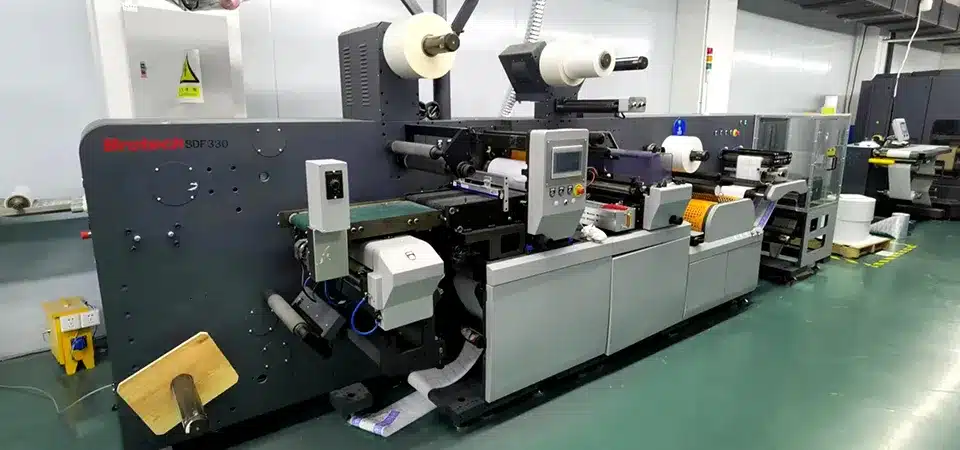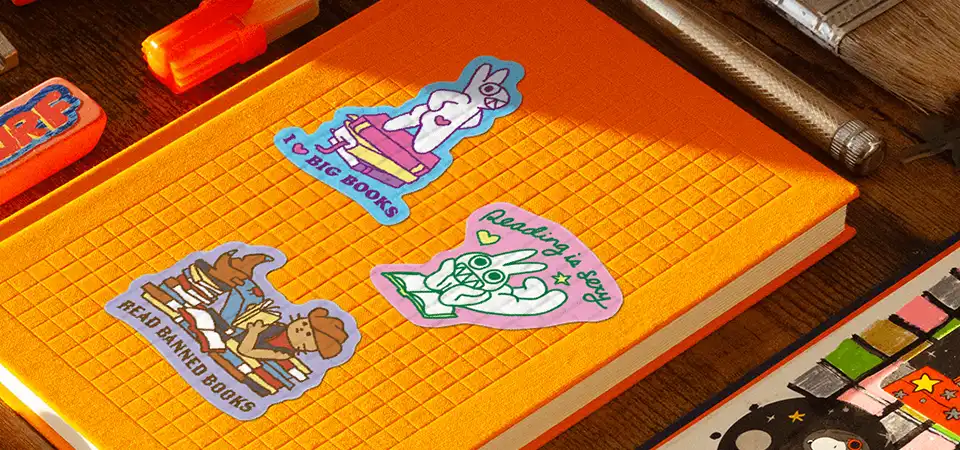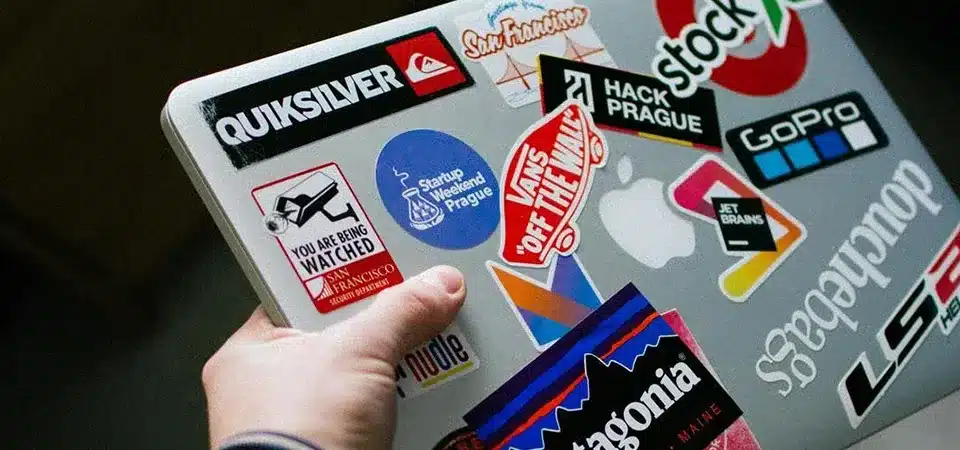Introduction
Custom roll labels play a critical role in modern business, manufacturing, and retail industries. As consumer demands and market competition grow, businesses and brands are seeking ways to enhance product appeal, differentiation, and marketing effectiveness. Custom roll labels are not just an additional element of product packaging; they provide important brand information, legal compliance, and a unique identity for products. This article will explore the best uses of custom roll labels and how they impact marketing, branding, and consumer behavior.
Basic Concept of Custom Roll Labels
What are Custom Roll Labels?
Custom roll labels are labels tailored to the specific needs of a product, brand style, or legal requirements. These labels typically include graphic design, brand logos, text descriptions, and other product information. The design and materials of custom roll labels can be adjusted based on the target market, product category, and brand strategy.
Types of Custom Roll Labels
Product Labels: The most common type of custom roll label, typically used in food, beverages, cosmetics, pharmaceuticals, household items, etc.
Shipping Labels: Used to indicate transportation details such as barcodes, destination addresses, weight, and shipping methods.
Safety Labels: Used to alert consumers or operators about safe handling or potential hazards of a product.
Compliance Labels: Labels that ensure the product meets national and international regulatory requirements.
Characteristics of Custom Roll Labels
Personalization: Can be designed based on brand requirements and consumer preferences.
Flexibility: High degree of customization in terms of label materials, shapes, sizes, and colors.
Functionality: More than just decorative; they provide product information, brand communication, and more.
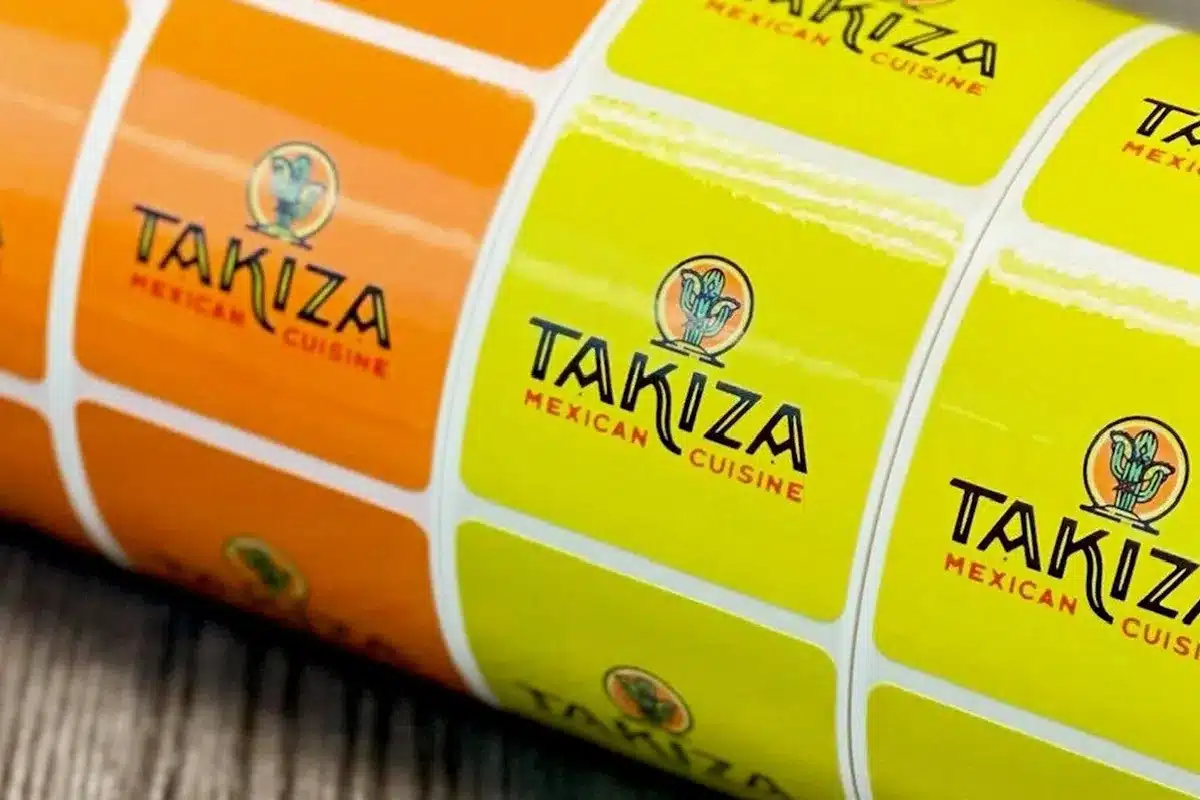
Best Uses for Custom Roll Labels
Branding and Marketing
Custom roll labels are a vital communication tool between businesses and consumers. Through customized designs, companies can convey their brand personality, values, and uniqueness to their audience. The colors, fonts, and graphic design of labels can evoke specific emotions, attracting target consumers.
Visual Appeal: Bright colors and unique designs can attract consumers’ attention, especially in a highly competitive retail market where eye-catching labels increase product purchase rates.
Brand Consistency: By using consistent label designs, companies ensure that their brand image remains consistent across various products and packaging. Consumers can easily recognize the brand wherever they encounter it.
Target Market Positioning: Custom roll label designs can help clearly communicate the brand's target market. For example, a label for a health food product may emphasize elements like "green" or "organic" to appeal to health-conscious consumers.
Enhancing the Consumer Experience
Custom roll labels are not just for decoration; they also provide the information consumers need. Modern consumers are increasingly demanding transparency and product information, and custom roll labels play a crucial role in meeting these needs.
Product Information Delivery: Labels often include key product details such as ingredient lists, usage instructions, expiration dates, etc. This helps consumers make informed decisions and boosts their confidence in their purchase.
Personalized Choices: Some brands allow consumers to choose specific product variations or packaging designs through custom roll labels. This personalized service can significantly boost customer loyalty.
Legal Compliance and Certification
Another important use of custom roll labels is ensuring that products comply with legal and industry regulations. In industries like food, pharmaceuticals, and cosmetics, labels must include legally required content to avoid penalties or product recalls.
Industry Standards: Custom roll labels ensure that products meet local or international industry regulations, reducing legal risks due to missing or incorrect information.
Certification Marks: Certifications like organic or FDA approval can be prominently displayed on custom roll labels to build consumer trust.
Product Differentiation and Market Competition
In a market with numerous products and fierce competition, standing out is a challenge for every brand. Custom roll labels help differentiate products through unique designs, creativity, and materials.
Differentiated Design: A distinctive label design allows consumers to recognize your product instantly on the shelf.
High-Quality Materials: Using premium materials such as high-quality paper, fabric, or transparent films gives labels a premium look and conveys a high-quality image for the product.
Sustainability and Environmental Responsibility
With the growing awareness of environmental issues, more companies are opting for eco-friendly materials for their custom roll labels. Consumers are increasingly interested in environmentally responsible packaging, which is driving innovation in label designs that use recyclable, biodegradable, or plant-based materials.
Eco-Friendly Label Design: Companies can choose non-toxic, eco-friendly inks and papers to minimize environmental impact.
Transparency and Sustainability: Custom roll labels can also feature information about the product's environmental impact, helping consumers make more sustainable choices.
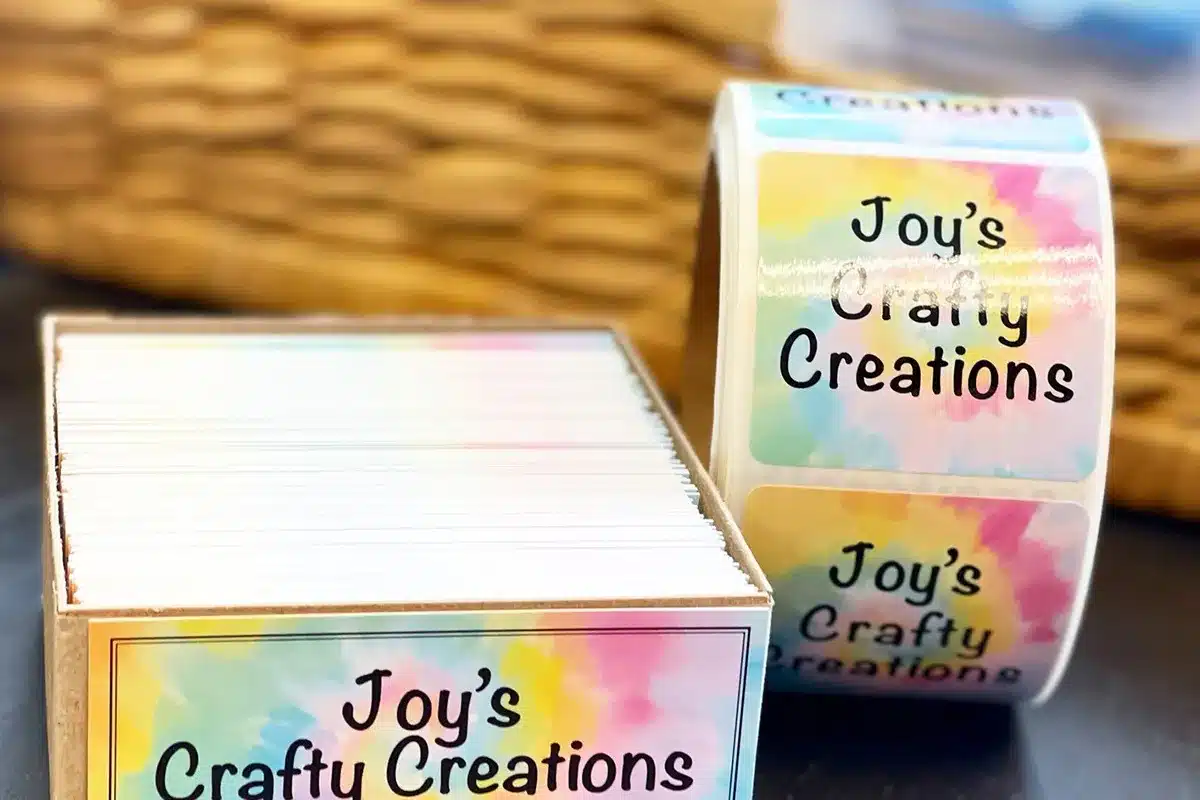
Design and Production of Custom Roll Labels
Design Process: The design process for custom roll labels involves several steps, including needs analysis, creative brainstorming, sketching, color selection, typography, and shape decisions. Throughout this process, the brand concept and product characteristics need to be integrated to ensure that the label meets both aesthetic and functional requirements.
Material Selection: The material chosen for custom roll labels directly affects their appearance and durability. Common materials include paper labels, synthetic material labels, transparent plastic labels, and fabric labels. Different materials suit different products and environments.
Printing Technology: There are various printing technologies for custom roll labels, such as traditional offset printing, screen printing, and modern digital printing. Each method has its own advantages in terms of cost, production speed, and quality, so businesses should choose the appropriate method based on their specific needs.
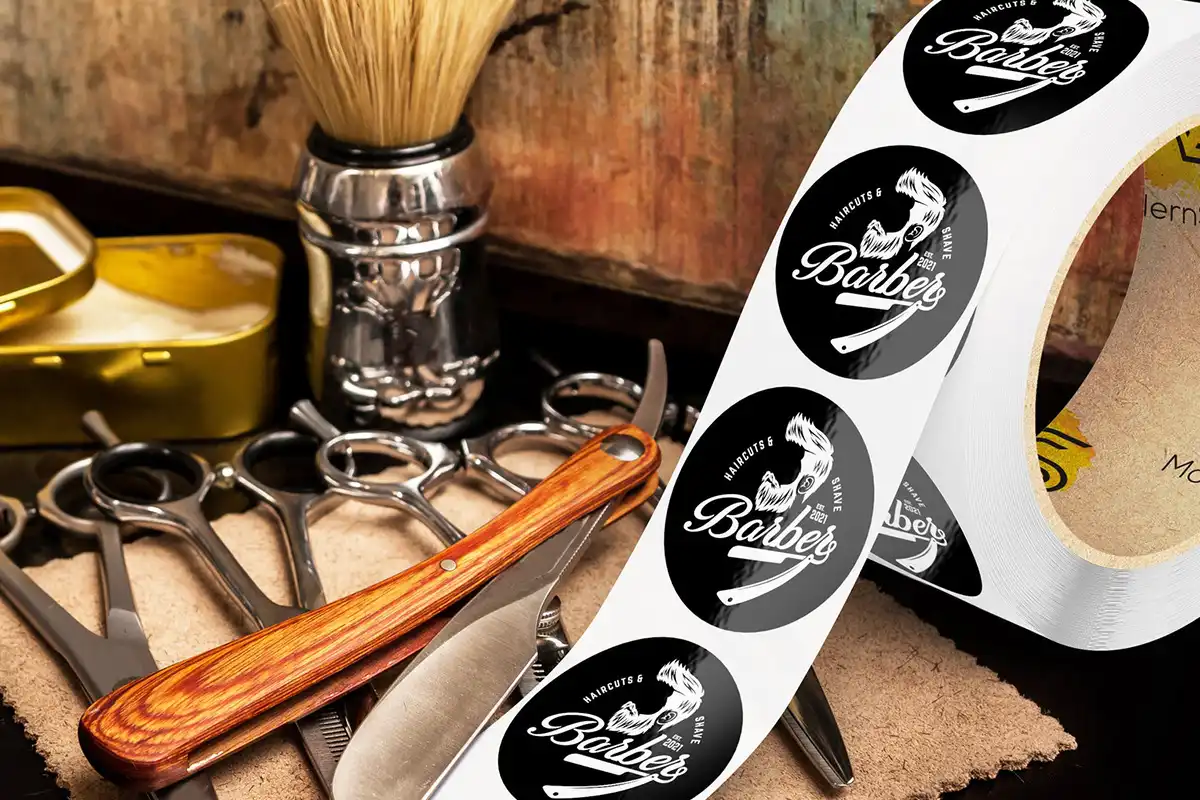
Applications of Custom Roll Labels in Various Industries
Food Industry: In the food industry, custom roll labels are used not only for branding but also for conveying clear nutritional information, allergen warnings, production dates, and other critical details. With growing consumer interest in healthy eating, food label design is increasingly focused on transparency and clarity.
Cosmetics Industry: Cosmetic labels must reflect the brand image and comply with specific legal requirements, such as ingredient lists, anti-counterfeit marks, and usage instructions. Cosmetics labels often prioritize visual appeal, using high-end materials and intricate patterns to convey sophistication.
Electronics Industry: Custom roll labels for electronic products typically include usage instructions, safety warnings, and warranty information. Clear labels are essential for ensuring consumers use the product correctly and safely.
Pharmaceutical Industry: In the pharmaceutical industry, label compliance is especially critical. Drug labels must include detailed ingredient lists, usage instructions, and certifications. The design of pharmaceutical labels must be clear and precise to ensure consumer safety.
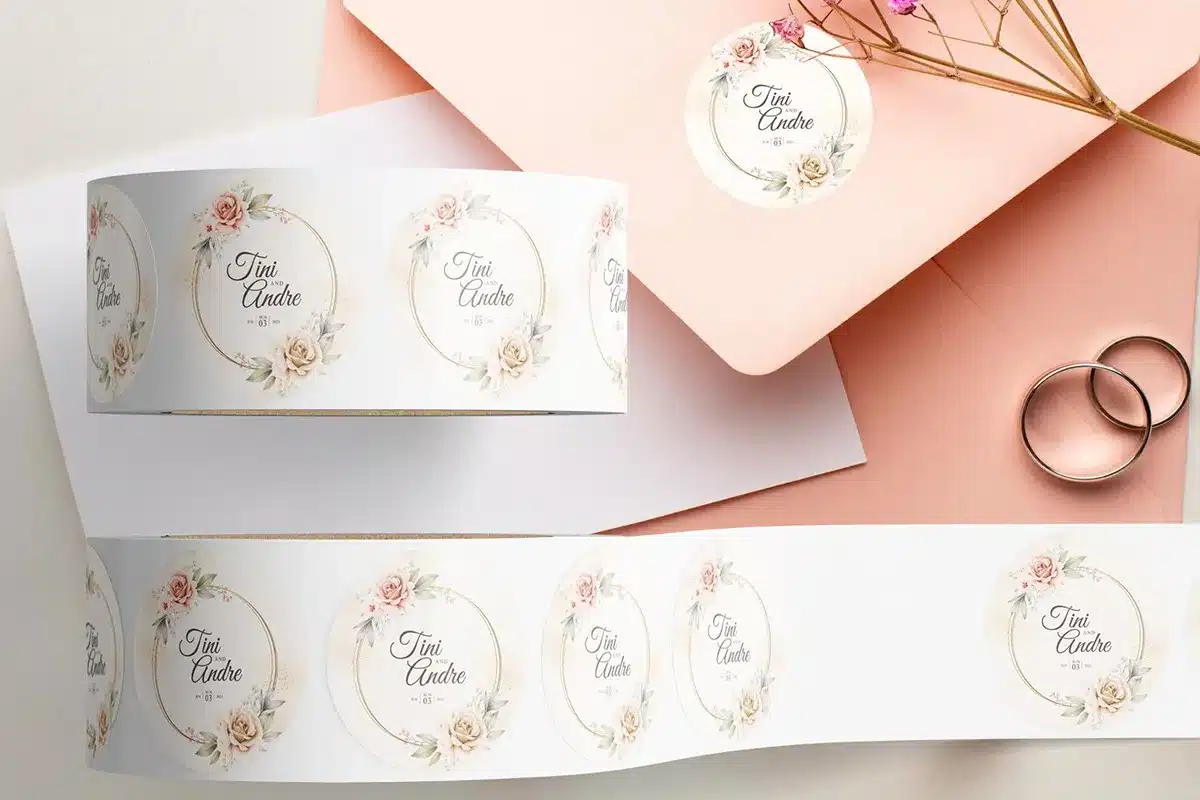
Conclusion
Custom roll labels are indispensable tools for branding, information dissemination, marketing, and legal compliance. Whether in the food, cosmetics, electronics, or pharmaceutical industry, custom roll labels play an irreplaceable role. As consumer demands change and market competition intensifies, the design and use of custom roll labels will continue to evolve. When choosing custom roll labels, businesses must consider product characteristics, brand positioning, and market demands to stand out in the competitive landscape.
FAQ
What are Custom Roll Labels?
Custom roll labels are labels specifically tailored to meet particular needs, including brand logos, product information, barcodes, compliance details, usage instructions, and more. Unlike generic labels, custom roll labels are personalized to align with a brand's image, market positioning, and legal requirements.
What are the Benefits of Custom Roll Labels?
Custom roll labels help brands create a unique visual identity and improve market competitiveness. They not only convey brand personality but also provide critical product information, ensure legal compliance, and enhance the consumer experience. Custom designs can effectively attract consumer attention, boost brand recognition, and increase a product's visibility in the market. Labels made with eco-friendly materials also cater to growing environmental awareness, helping to reinforce a brand's commitment to social responsibility.
What Types of Products Use Custom Roll Labels?
Custom roll labels are suitable for almost all types of products, including but not limited to:
- Food and Beverages: To communicate nutritional information, allergens, production dates, and more.
- Cosmetics and Personal Care Products: Including ingredient lists, usage instructions, anti-counterfeit marks, and more.
- Electronics: Featuring safety warnings, user manuals, and compliance details.
- Pharmaceuticals and Supplements: Subject to strict legal regulations, typically including ingredients, dosage, and usage instructions.
- Household Products and Cleaning Supplies: Often featuring product ingredients, usage instructions, and safety warnings.
What is the Design and Production Process for Custom Roll Labels?
The design and production of custom roll labels typically involve several key steps:
- Needs Analysis: Identifying the functional requirements of the label, such as brand identity and legal compliance.
- Design Development: Creating the label's visual look based on the brand's style and the product's characteristics.
- Material Selection: Choosing the appropriate material (such as paper, plastic, or metal) based on the label's durability and intended use.
- Printing Technology Selection: Deciding on the printing method (such as offset, screen printing, or digital printing) based on production needs.
- Sample Approval: Creating and reviewing samples to ensure they meet design expectations.
- Production and Delivery: Mass-producing the custom labels and delivering them to the business.
How Do You Choose the Right Material for Custom Roll Labels?
When selecting material for custom roll labels, consider the following factors:
- Product Type: For food and cosmetics, materials that are moisture- or oil-resistant may be needed, while electronic labels require more durable synthetic materials.
- Environmental Factors: Labels that will be exposed to outdoor conditions may need materials that are UV-resistant or heat-resistant.
- Visual Appeal: Different materials offer different finishes, such as gloss or matte, which can affect the label's appearance. Paper labels often provide a natural, eco-friendly feel, while plastic labels look more modern.
- Environmental Concerns: If the brand is environmentally focused, selecting recyclable or biodegradable materials is a great choice.
What Printing Methods Are Used for Custom Roll Labels?
Common printing methods include:
- Offset Printing: Suitable for large-volume production, providing high-quality printing.
- Screen Printing: Ideal for printing large solid colors or patterns, commonly used for durable labels.
- Digital Printing: Best for short runs and small quantities, offering high precision and a faster turnaround time.
- Thermal Transfer Printing: Used for labels that require high durability and heat resistance.
How Do Custom Roll Labels Meet Legal Compliance Requirements?
Custom roll labels must adhere to relevant legal regulations, such as food, cosmetic, or pharmaceutical labeling laws. Common compliance requirements include:
- Ingredient and Nutritional Information: Labels must list ingredients, nutritional values, and allergens according to regulatory standards.
- Production Date and Expiration Date: Labels should include essential details like expiration dates, batch numbers, and production dates.
- Safety Warnings: Industries such as pharmaceuticals, cosmetics, and cleaning products must include safety instructions or warnings.
- Certification Marks: If applicable, certifications like organic or eco-friendly labels must be prominently displayed.
Can Custom Roll Labels Help Boost Sales?
Yes, custom roll labels can increase sales by:
- Attracting Consumer Attention: Unique and appealing designs can catch the eye of potential customers, increasing the likelihood of a purchase.
- Building Brand Trust: High-quality labels convey product reliability and the professionalism of the brand, helping to establish consumer trust.
- Fostering Brand Loyalty: Labels with personalized, innovative designs can help consumers feel connected to a brand, encouraging repeat purchases.
How Are Custom Roll Label Costs Calculated?
The cost of custom roll labels depends on several factors:
- Design Complexity: More intricate designs require additional creative time, which can increase costs.
- Material Choice: Premium or specialty materials (such as transparent plastic or metal) may raise the cost of labels.
- Printing Technology: Different printing methods have varying costs; digital printing is typically more expensive for small runs, while offset printing is more cost-effective for larger volumes.
- Quantity: Larger orders generally lower the unit price, while smaller runs tend to cost more per label.
Are Custom Roll Labels Suitable for Eco-Friendly Products?
Yes, custom roll labels are ideal for eco-friendly products. Many environmentally conscious brands incorporate green elements into their label design. Using recyclable materials, non-toxic inks, and plant-based materials can communicate a brand's environmental values and appeal to eco-minded consumers. This not only enhances brand image but also meets market demand for sustainable products.
How Can You Ensure the Quality of Custom Roll Labels?
To ensure high-quality custom roll labels, consider the following:
- Choose a Reputable Manufacturer: Work with an experienced label manufacturer to guarantee high-quality production standards.
- Approve Samples: Request samples before full-scale production to verify the design and material meet your expectations.
- Use High-Quality Materials: Ensure that premium materials, such as high-quality paper and ink, are used for durability and optimal print quality.
- Implement Strict Quality Control: After production, perform thorough quality checks to ensure that each batch meets the required standards.


